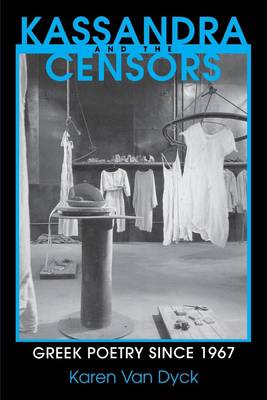
- Retrait gratuit dans votre magasin Club
- 7.000.000 titres dans notre catalogue
- Payer en toute sécurité
- Toujours un magasin près de chez vous
- Retrait gratuit dans votre magasin Club
- 7.000.0000 titres dans notre catalogue
- Payer en toute sécurité
- Toujours un magasin près de chez vous
Description
In this pioneering study of contemporary Greek poetry, Karen Van Dyck investigates modernist and postmodernist poetics at the edge of Europe. She traces the influential role of Greek women writers back to the sexual politics of censorship under the dictatorship (1967-1974).
Reading the effects of censorship--in cartoons, the dictator's speeches, the poetry of the Nobel Laureate George Seferis, and the younger generation of poets--she shows how women poets use strategies which, although initiated in response to the regime's press law, prove useful in articulating a feminist critique. In poetry collections by Rhea Galanaki, Jenny Mastoraki and Maria Laina, among others, she analyzes how the censors'tactics for stabilizing signification are redeployed to disrupt fixed meanings and gender roles.
As much a literary analysis of culture as a cultural analysis of literature, her book explores how censorship, consumerism, and feminism influence contemporary Greek women's poetry as well as how the resistance to clarity in this poetry trains readers to rethink these cultural practices. Only with greater attention to the cultural and formal specificity of writing, Van Dyck argues, is it possible to theorize the lessons of censorship and women's writing.
Spécifications
Parties prenantes
- Auteur(s) :
- Editeur:
Contenu
- Nombre de pages :
- 328
- Langue:
- Anglais
- Collection :
Caractéristiques
- EAN:
- 9780801427046
- Date de parution :
- 23-12-97
- Format:
- Livre relié
- Format numérique:
- Genaaid
- Dimensions :
- 159 mm x 237 mm
- Poids :
- 616 g

Les avis
Nous publions uniquement les avis qui respectent les conditions requises. Consultez nos conditions pour les avis.






